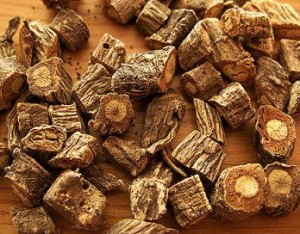Ledebouriella divaricata root is used in traditional Chinese medicine. It is cultivated in the province of Heilong in China. It is grown and collected during the spring and fall seasons when the root is ready to be harvested and processed for its many therapeutic properties.
Contents
Uses
Ledebouriella can be used to treat cold-related headaches and body aches, especially pains in the joints, as well as diarrhea, chills, and tremors. It is also a remedy for tetanus, lockjaw, and general convulsions. Ledebouriella has an antimicrobial effect and has been shown to inhibit influenza viruses. It has been used as an effective antidote to arsenic poisoning.
Benefits
In modern times, the Ledebouriella divaricata root was studied and shown to have many therapeutic properties. It has anti-inflammatory properties that can benefit arthritis suffering people. It can reduce joint swelling, pain, redness and increases joint mobility in no time at all with continued use. It can also be an effective treatment for rheumatoid arthritis as well as to reduce the spasms of tired muscles and to reduce pains due to excessive exercise and mobility.
In skin conditions, it is known to treat skin itching and to reduce skin inflammation. It can also be used alongside other herbs such as Jing Jie in the treatment of the common cold and in combination with other herbs to treat wind-heat type illnesses.
Because of the sweet and pungent taste of the Ledebouriella divaricata root, it has been known to treat disorders of the liver, spleen and the urinary system. It is also seen as a relief of symptoms of tetanus, opisthotonus trismus and also for spasms of the facial muscles and muscles of the extremities.
Cautions
The Ledebouriella divaricata root has many therapeutic properties but it is contraindicated in patients with blood related problems. In traditional Chinese medicine, the Ledebouriella divaricata root is not given to patients that have “excessive fire” nor for people that have a Yin deficiency.
It is contraindicated in women that are either pregnant or breastfeeding and may also not be applicable for use by and for very young children and babies. If you wish to use Ledebouriella divaricata root for your illness or ailment, it is always best to consult your doctor or a herbalist first before beginning any treatment on your own. Always ask about any possible adverse reactions with any medication you may be taking currently. For use externally, never apply the Ledebouriella divaricata root herb onto broken, open or infected skin; seek medical consultation first.
Interactions
None are recorded.
Other names
Siler root
Latin name: Radix ledebouriella divaricatae, Radix saposhnikoviae
Chinese name: fang feng
Other name: ledebouriella root
References
Source: NaturalWellBeing, http://www.naturalwellbeing.com/learning-center/Ledebouriella_Divaricata_Root
Ask Dr.Mao, http://www.askdrmao.com/natural-health-dictionary/siler-root/

